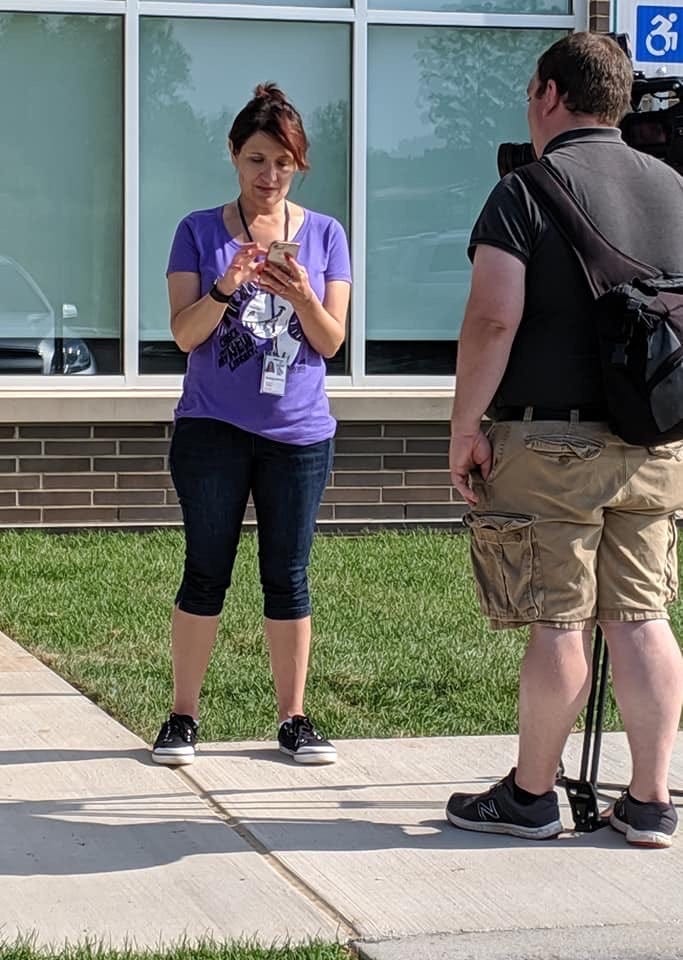“Coffee is for closers only.”
-Glengarry Glen Ross
The week I started my job as a library director, I was in the break room one afternoon eating cake (we ate a lot of cake at my library in those days) when a staff member came in and said, “A television crew is here and wants to talk to someone.”
I looked around, fork midair, and realized that someone was me.
Lucky for all of us, long before the day a television crew showed up unannounced, I had sought out opportunities to work with the media to promote various projects I was working on in libraries, and so I felt comfortable talking to reporters. I imagine that being a person who is sassy enough to cold call reporters is part of how I found myself in management jobs. By the time I became a library director, I had been on camera both in the field and in studio, and I’d worked with newspaper and radio reporters—all around low-stakes, feel-good topics. My first TV appearance was to demonstrate crafts folks could do with their kids during spring break week. I thought I was going to die when I was doing this, but I didn’t.
Low-stakes work with the media was excellent practice for when working with the media really mattered.
For instance, here’s a photo from the day my library opened a new $12.5 million facility.

Look at me, so blasé. I’m like, “Can you just wait there with your heavy camera while I finish this text message or make a quick post on Instagram or whatever?”
So how do you get this comfortable working with reporters?
Learning about marketing and PR as subjects is a good place to start, and there are a million ways to learn about these topics. Take a class, read a book, find articles and guides on the Internet. I have done all these things continuously through the years, because media is always changing, and one can always sharpen one’s skills.
Next, you need to learn about the media landscape in your area. What outlets exist? Which love to sensationalize everything? Which try to offer balanced reporting on a variety of topics, some of which don’t involve anyone’s life getting ruined? Get to know the work of individual reporters. Reporters aren’t rabid raccoons; they’re people trying to do a job, just like you are. Understanding what they’re trying to do and how they go about doing it will help you build positive working relationships.
The final step, the one most people don’t do, is create opportunities to practice what you’ve learned. This is where most people stall out and don’t become savvy at working with the media, and then they can’t effectively use the media when they need it. I have seen many building projects and budget votes fail for this reason.
Effective management is going to require you to be brave. Yes, I know, it’s hard. Failure because you were too afraid to try is harder.
Look around. You and your colleagues are doing important work at your library that would make excellent news stories. Identify some of those stories, develop plans for pitching them to media outlets, and then pitch them. (If you aren’t in charge, you should probably talk to your supervisor before jumping into this.) The worst thing that will happen is that the media will ignore you, which is fine. If you’re in management, you’re going to need to learn how to cope with people ignoring you, so think of it as a way to practice multiple skills. If your pitches get ignored, troubleshoot your process and try something else. Have you ever seen Glengarry Glen Ross? ABC: Always Be Closing. The key to success is to keep trying until you get it done. (Side note: Don’t try to be like anyone in that film/play. They’re horrible people.)
Most of you aren’t going to do this.
If you do, though? Superpower.
Good luck!


Well written and well put!